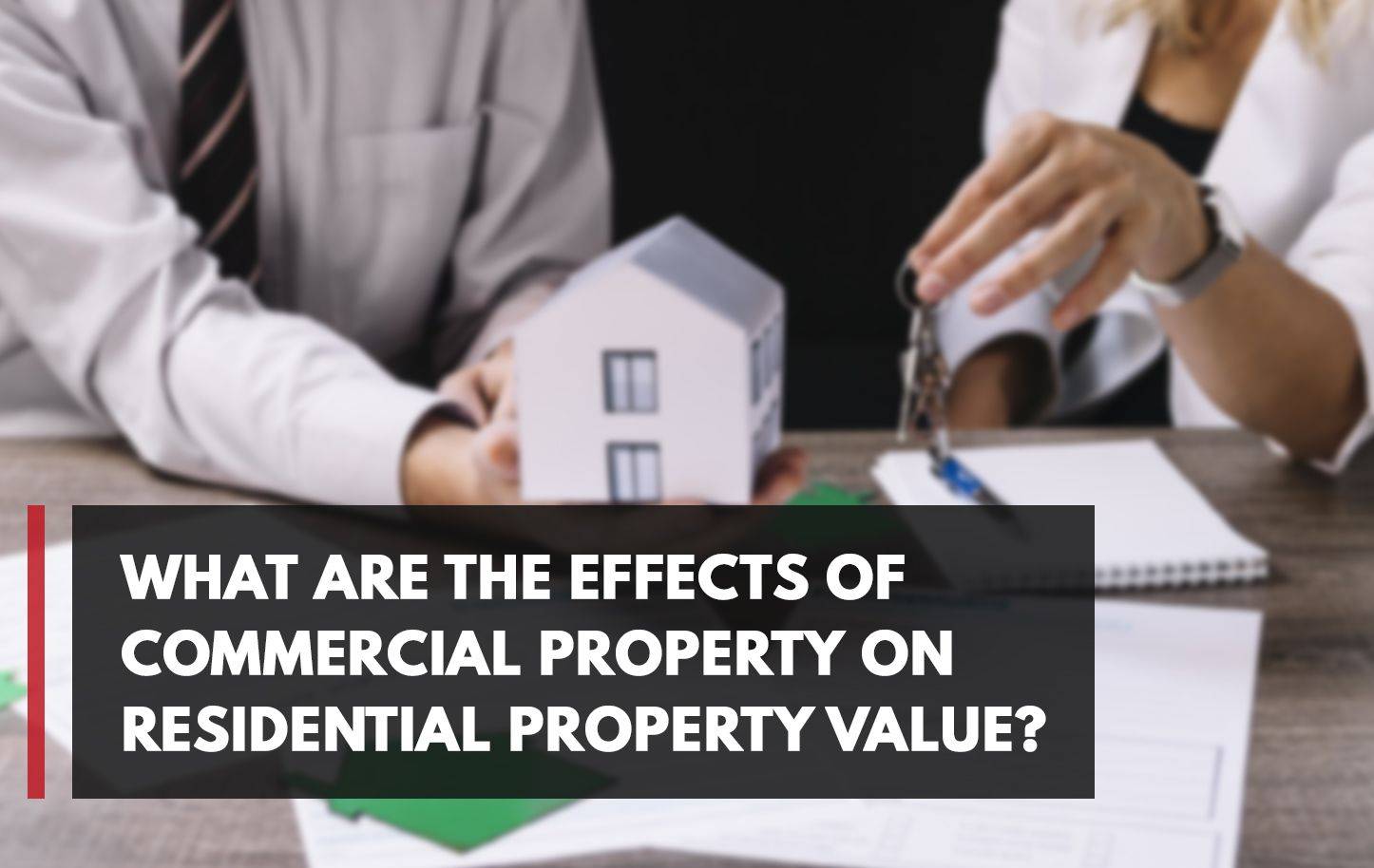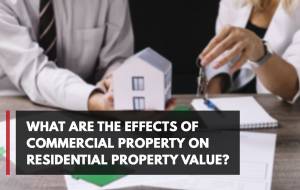
What Are the Effects of Commercial Property on Residential Property Value?
Published At: Sun, 11/07/2021 - 03:00
Buying or selling a property is one of the most critical decisions in life. However, it can be difficult to decide if you don't know how commercial properties affect residential property values.
Commercial properties impact residential property value to a great extent. Therefore, it makes sense to know how this type of real estate affects home prices in your area.
By understanding how commercial property can affect the value of houses, you can make better investment decisions if you plan to shop for a commercial space for your business in the future.
In this article, we'll cover the basics of the relationship between commercial and residential real estate.
Commercial Property vs. Residential Property
Commercial and residential properties serve different purposes. Residential homes are for people to live in, while commercial properties account for all of the buildings that accommodate businesses or other organizations that need space for opertations.
In addition, commercial properties tend to maintain their value over time because of their consistent renters and tenants. Not to mention, many of these tenants occupy the same space for years. On the contrary, residential property prices often fluctuate and those lease terms tend to be shorter.
Commercial Property's Effect on Residential Property Value
While in most cases commercial properties don't directly impact residential property values, they do sometimes lead to changes that indirectly affect the worth of nearby homes.
To understand that better, let's look at some of the most common effects commercial properties have on residential property values.
Increasing Traffic Congestion
One of the major concerns of homeowners is the increase in the amount of traffic that could come from commercial properties, which can affect residential property values in the long run.
Homeowners looking for a more quiet and less dense area to live in don't want to see their streets become congested with heavy traffic and more people. This is one of the reasons why homeowners protest against new commercial developments, especially if they already see a lot of congestion on nearby streets.
Moreover, having too many businesses with no room left for parking spaces will negatively impact nearby homes' value.
On the other hand, in a city setting with a higher population density, commercial buildings that provide essential services can help boost and maintain its real estate prices over time.
Construction Noise
The rise in construction caused by commercial property can also have an negative impact on residential property value. If you've ever lived near a project that's been under construction for more than six months, then you know how noise pollution affects not only your quality of life but home prices as well.
Noisy machinery or trucks backing into loading docks late at night or early in the morning are common problems that affect residents' quality of life. Especially in areas where noise pollution is a problem, homes near industrial sites can suffer, lowering the value of nearby properties.
Industrial Pollution
In some areas, households or warehouses located near industrial zones can suffer from the adverse effects of pollution. Homeowners might want to sell their property and find a new home elsewhere if they don't want to live near those conditions. As a result, the property value may attract fewer buyers.
Career Opportunities
Commercial properties are significant for local economies and they don't affect the residential property value as negatively as people might think.
For example, commercial buildings provide jobs and services to the community which greatly benefits homeowners. Because of that, commercial properties are often welcomed in areas where there's a higher demand for employment.
Public Transportation
One of the most significant benefits that commercial properties can bring to residential areas is better public transportation. Having more businesses and people moving around will make it necessary for cities to improve their infrastructure, such as increasing bus routes, opening up new train lines, or improving arterial roadways or highways.
These changes will create greater convenience for those who initially had limited access to transportation since they would then have additional alternatives for traveling from their homes to nearby establishments.
Cultural Impact
Lastly, commercial properties can help increase the overall culture and diversity of a neighborhood, hence growing the residential property value.
Local businesses help residents discover new things about their community that they might not have otherwise known.
This is a great resource for those families with kids looking for more choices when it comes to activities outside the house, such as going out for ice cream after dinner or stopping by a bookstore on their way home from school.
How Do You Determine The Value Of A Commercial Property?
The value of a commercial property depends on several criteria, including its location. For example, if there are no adjacent properties with businesses or industrial factories, you would want to look at comparable sales for similar structures in the same market.
The type of business currently operating out of the property can also impact its value.
Final Thoughts
Commercial property can be a great investment opportunity. However, if you are looking to get into the commercial real estate market, you must know how this investment impacts residential home value. While there are some adverse effects that commercial properties may have on a neighborhood, the benefits are also abundant.
To find out if your property would fit in a particular neighborhood, consult a local real estate agent who knows the market well enough to help you make an informed decision.


